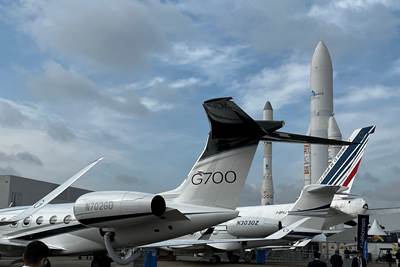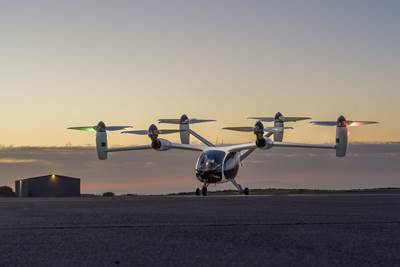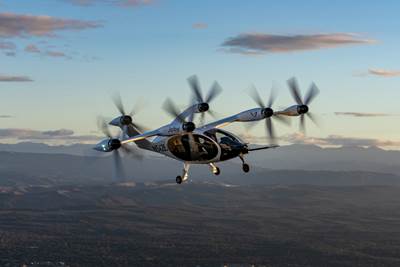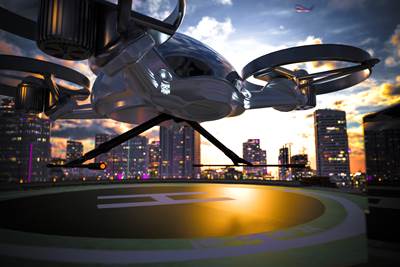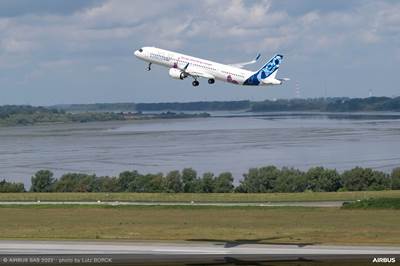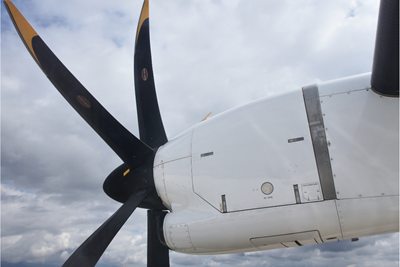Composites Use in Advanced Air Mobility
Urban air mobility (UAM), sometimes referred to as advanced air mobility (AAM), is a market that continues to evolve and mature. Aircraft of this genre are designed to perform one of two functions. One is to provide piloted or autonomous air taxi service, transporting people from point A to point B (heliport/airport-to-heliport/airport) over a distance of 25-400 kilometers, intracity or intercity. The second function is to provide autonomous cargo transport in similar environments.

Latest Advanced Air Mobility Articles
VIEW ALLArcher completes construction of high-volume manufacturing facility for Midnight eVTOL aircraft
Tooling load-in is already underway ahead of the planned start of initial production beginning early 2025, while Stellantis and Archer work to finalize the exclusive contract agreement.
Read MoreAnduril joins Archer for hybrid VTOL military aircraft development
The companies’ first product from this partnership, aided by an additional $430 million raised by Archer, is planned to be a hybrid-propulsion VTOL that will target a potential program of record from the U.S. DOD.
Read MoreOn the radar: Innovations in composite battery enclosures
A look at recently reported design, material and process innovations for composites-intensive battery enclosures, developed to support the ramp-up of EV and AAM vehicles.
WatchPAL-V, NLR complete composite rotors for Liberty flying car
Rotor blade design spans nearly 11 meters in length for flight, with a mid-hinge to fold and accommodate 4-meter vehicle length while driving.
Read MoreVertical Aerospace completes Phase 2 piloted flight testing
VX4 eVTOL aircraft prototype begins untethered, piloted, thrust-borne testing following expansion of permit to fly from the UK Civil Aviation Authority.
Read MoreBeta begins Alia CTOL production aircraft flight testing
Flight of first production aircraft fresh off Beta’s full-scale manufacturing line in Vermont is followed by Special Airworthiness certification from the FAA.
WatchKnowledge Centers
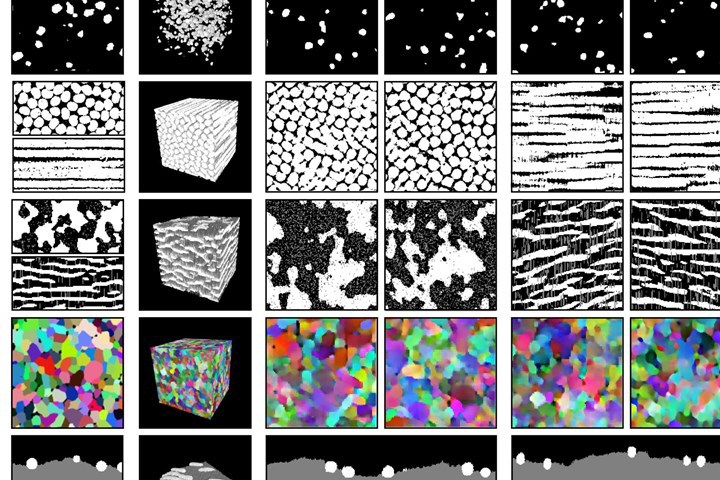
Review the state of the art in design, simulation, failure analysis, digital twins, virtual testing and virtual inspection.
LEARN MORE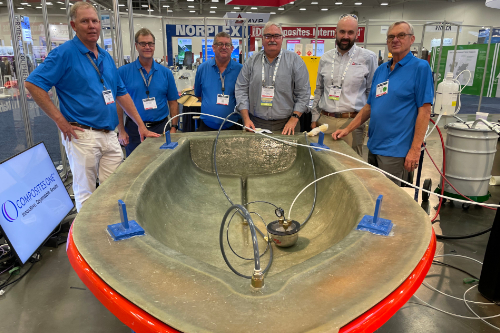
Closed mold processes offer many advantages over open molding. This knowledge center details the basics of closed mold methods and the products and tools essential to producing a part correctly.
LEARN MORELatest Advanced Air Mobility News And Updates
Lilium launches M&A process, targets eVTOL program continuation
Despite court-approved insolvency filings and beginning first investor briefings, Lilium remains fully focused on re-emerging following restructuring, setting its sights on fresh investment to support the Lilium Jet.
Read MoreArcher Aviation signs eVTOL aircraft purchase with Japan
Japan Airlines’ and Sumitomo’s joint venture company intends to purchase up to 100 Midnight aircraft to certify and commercialize AAM services across Japan.
Read MoreVoltAero opens facility in France for Cassio aircraft
VoltAero inaugurates its industrial facility in Rochefort for the final assembly line for the family of Cassio electric-hybrid aircraft, to incorporate composite elements.
Read MoreManta Aircraft, Shenyang Aviation establish AAM aircraft partnership
The focus of accelerated development is on Manta’s Ann Plus vehicle model, offering a complete carbon fiber structure and VTOL and STOL operation capabilities.
Read MoreBeta Technologies raises $300 million to fund AAM growth, commercialization
Series C capital raise will be used to propel the certification of Beta’s composites-intensive Alia CTOL, Alia VTOL and electric motors, while directly supporting ramp-up of production, delivery of aircraft and chargers.
Read MoreAAM startup Lilium to file for self-administered insolvency
Two of its principal subsidiaries will file for insolvency and apply for self-administration, follows failed loan efforts from German parliament’s Budget Committee, Bavarian government.
Read MoreFeatured Posts
Paris Air Show 2023 highlights
The Paris Air Show, one of the largest aerospace trade shows in the world, returned for the first time since 2019 and proved that the global aviation industry industry is very much alive and kicking.
Read MoreHow composites have become a necessity
Composites used to be one of many material options across industries and applications, but that's not the case anymore.
Read MorePlant tour: Joby Aviation, Marina, Calif., U.S.
As the advanced air mobility market begins to take shape, market leader Joby Aviation works to industrialize composites manufacturing for its first-generation, composites-intensive, all-electric air taxi.
Read MoreComposites opportunities in eVTOLs
As eVTOL OEMs seek to advance program certification, production scale-up and lightweighting, AAM’s penetration into the composites market is moving on an upward trajectory.
Read MoreComposites end markets: Aerospace (2023)
With COVID in the past and passengers flying again, commercial aircraft production is ramping up. The aerocomposites supply chain is busy developing new M&P for an approaching next-generation aircraft program.
Read MoreWe're going to need a lot of propeller blades
As advanced air mobility expands and annual shipsets get into the thousands, the demand for composite propeller blades is expected to skyrocket. What are the implications for the composites supply chain?
Read MoreFAQ: Advanced Air Mobility
What is urban air mobility?
- Urban air mobility (UAM), sometimes called advanced air mobility (AAM), is an emerging aerospace market. These aircraft can be piloted or autonomous, designed for cargo transport or as air taxis for transporting people intercity or intracity.
- Source: Composites end markets: Aerospace
What is an eVTOL?
Electric vertical takeoff and landing (eVTOL) aircraft are some of the first models to be developed for the urban air mobility market.
They are powered by electric propulsion (generally batteries), and are designed to take off and land vertically. These can include propeller-centric, helicopter-style aircraft as well as fixed-wing aircraft.
How are composites being used in urban air mobility?
UAM aircraft are in various stages of development. Most, if not all, are using composites to some extent for aircraft bodies, wings or other components. The focus has been on technologies that are already qualified for commercial aircraft use – such as hand layup and autoclave cure of prepreg carbon fiber/epoxy.
As progress continues, additional composite materials such as thermoplastic composites will likely become more widely used.





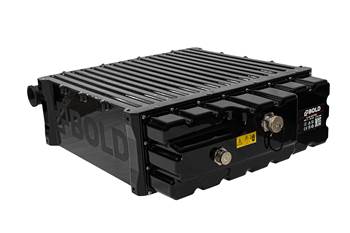






.jpg;maxWidth=300;quality=90)












